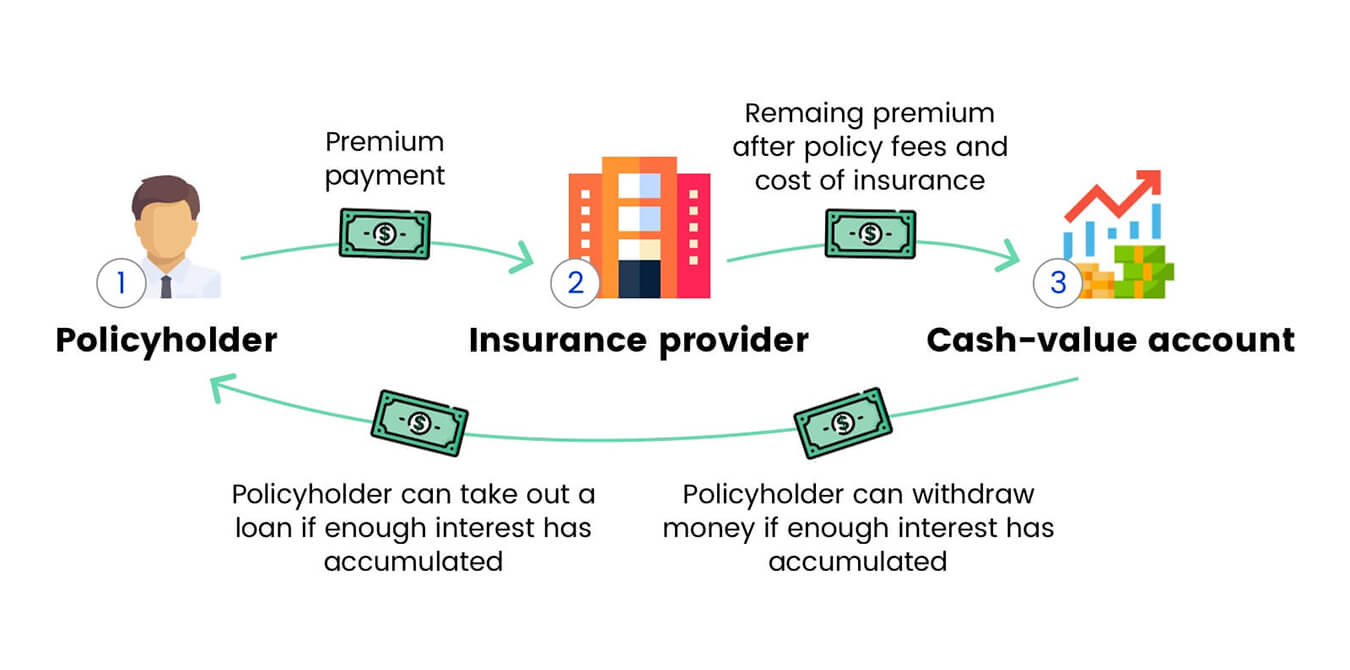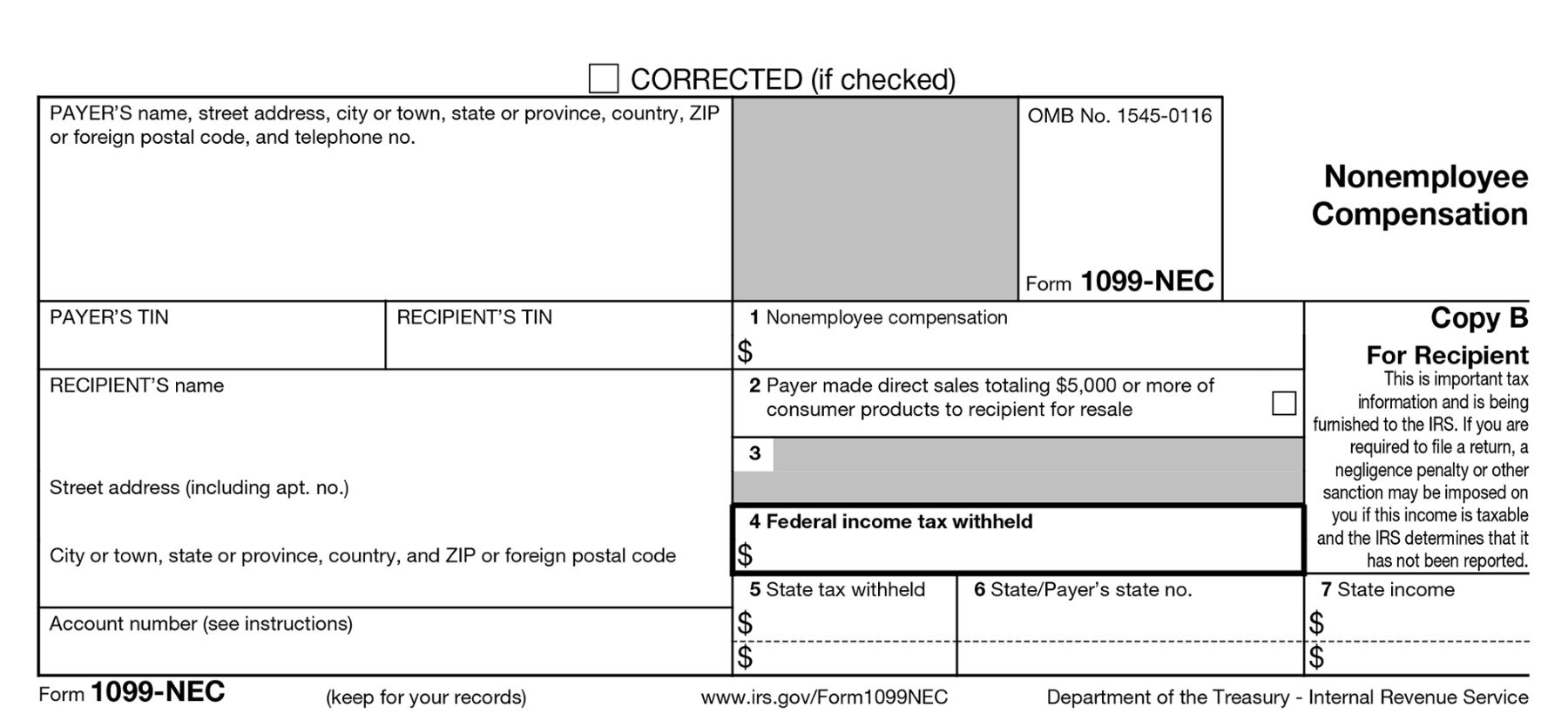

Finance
What Insurance Companies Cover Rebuilt Titles?
Published: November 17, 2023
Looking to finance a rebuilt title vehicle? Discover which insurance companies provide coverage for rebuilt titles to protect your investment.
(Many of the links in this article redirect to a specific reviewed product. Your purchase of these products through affiliate links helps to generate commission for LiveWell, at no extra cost. Learn more)
Table of Contents
- Introduction
- What are rebuilt titles?
- Why do insurance companies have restrictions on rebuilt titles?
- Insurance companies that provide coverage for rebuilt titles
- Geico
- Progressive
- State Farm
- Allstate
- Liberty Mutual
- Nationwide
- Farmers Insurance
- USAA
- Factors to consider when looking for insurance coverage for rebuilt titles
- Conclusion
Introduction
Welcome to the world of rebuilt titles! If you’re in the market for a used car, you may have come across vehicles with rebuilt titles and wondered what that means. A rebuilt title is a designation given to a vehicle that was previously declared a total loss by an insurance company but has been repaired and restored to a roadworthy condition. While these vehicles can offer a more affordable option, obtaining insurance coverage for them can be a bit more challenging.
Insurance companies have restrictions on providing coverage for rebuilt titles due to various reasons. They want to mitigate the risks associated with these vehicles, as they typically have a higher chance of being involved in accidents or experiencing mechanical issues. Additionally, the repair quality and safety of the rebuilt vehicle may not be up to standard, which further increases the insurance company’s risk exposure.
However, there are insurance companies that specialize in providing coverage for rebuilt titles. These companies assess the vehicle’s condition, quality, and repairs before determining whether to provide coverage and at what rate. If you’re considering purchasing a vehicle with a rebuilt title, it’s essential to research insurance options to ensure that you can get the coverage you need.
In this article, we will explore some of the insurance companies that offer coverage for rebuilt titles. We’ll delve into their policies and requirements, helping you make an informed decision. Keep in mind that the availability of coverage may vary depending on your location and the specific circumstances of the rebuilt vehicle.
So, if you’re ready to learn more about insurance coverage for rebuilt titles, let’s dive in!
What are rebuilt titles?
A rebuilt title is a designation given to a vehicle that has previously been declared a total loss by an insurance company but has been repaired and deemed roadworthy again. This often occurs when a vehicle has been involved in a significant accident, flood, or other event that causes extensive damage. Instead of being sold for scrap, these vehicles are rebuilt and put back on the market.
When a vehicle is declared a total loss, it means that the cost of repairs exceeds a certain percentage of the vehicle’s value determined by the insurance company. At this point, the insurance company takes possession of the vehicle and issues a salvage title. The salvage title serves as a notification that the vehicle has significant damage and may not be safe to drive on the road.
Once the vehicle has undergone repairs, it undergoes a thorough inspection by a certified mechanic or a state agency to ensure that it meets safety and roadworthy standards. If the repairs are successful, the vehicle is issued a rebuilt title, indicating that it has been restored to a drivable condition.
It’s important to note that rebuilt titles can apply to various types of vehicles, including cars, trucks, motorcycles, and recreational vehicles. When purchasing a vehicle with a rebuilt title, it’s crucial to review the repair records, understand the extent of the damage, and have a trusted mechanic inspect the vehicle before making a final decision.
While rebuilt titles offer an opportunity to purchase a vehicle at a lower price compared to similar models with clean titles, there are some considerations to keep in mind. These vehicles may have a history of significant damage, which could impact their long-term reliability and resale value. Additionally, insurance companies often have restrictions on providing coverage for rebuilt titles due to the potential risks associated with repairing and rebuilding a vehicle.
Now that we’ve covered the basics of what rebuilt titles are, let’s delve into why insurance companies have restrictions on providing coverage for such vehicles.
Why do insurance companies have restrictions on rebuilt titles?
Insurance companies place restrictions on providing coverage for vehicles with rebuilt titles due to several reasons. These restrictions are put in place to manage the increased risks associated with rebuilt vehicles and to protect the insurer and policyholders.
One of the primary reasons insurance companies have restrictions on rebuilt titles is the uncertainty surrounding the quality of repairs. When a vehicle is involved in a significant accident or sustains extensive damage, the repairs required to make it roadworthy again can be complex. Consequently, there is a higher likelihood of subpar repairs or inadequate safety measures being implemented during the rebuilding process. This can result in potential mechanical issues, safety hazards, and an increased risk of accidents. Insurance companies are cautious about providing coverage for these vehicles to mitigate their exposure to such risks.
Another factor that influences insurance companies’ restrictions is the difficulty in accurately calculating the value of a vehicle with a rebuilt title. As mentioned earlier, these vehicles have a history of being declared a total loss by an insurance company. Determining the fair value of a rebuilt vehicle can be challenging, as its depreciation and market worth may differ significantly from a similar vehicle with a clean title. Insurance companies may struggle to provide accurate coverage and assess the appropriate premiums for these vehicles.
Additionally, the potential fraudulent practices associated with rebuilt titles are a concern for insurance companies. Some unscrupulous individuals may attempt to rebuild and resell vehicles without disclosing the extent of the damage or using substandard repairs. This not only poses a risk to the insurance company but also to unsuspecting buyers who may unknowingly purchase a vehicle with hidden safety issues. By imposing restrictions on coverage for rebuilt titles, insurance companies aim to discourage fraudulent activities and protect their policyholders from potential harm.
Insurance companies that do offer coverage for rebuilt titles often have additional requirements and stipulations. These can include more frequent vehicle inspections, higher deductibles, and limitations on the coverage amount. The specific restrictions and requirements may vary depending on the insurance company, the state regulations, and the individual circumstances of the rebuilt vehicle.
Now that we have explored the reasons behind insurance companies’ restrictions on rebuilt titles, let’s dive into the insurance companies that do provide coverage for these vehicles.
Insurance companies that provide coverage for rebuilt titles
While insurance companies generally have restrictions on providing coverage for vehicles with rebuilt titles, there are some companies that specialize in insuring these vehicles. These companies understand the unique considerations and risks associated with rebuilt vehicles and offer coverage tailored to their specific needs. Here are some insurance companies that provide coverage for rebuilt titles:
- Geico: Geico is known for its competitive rates and extensive coverage options. They offer insurance coverage for vehicles with rebuilt titles, but the availability may vary by state.
- Progressive: Progressive is another insurance company that provides coverage for vehicles with rebuilt titles. They offer policies specifically designed for rebuilt vehicles and have options for comprehensive and collision coverage.
- State Farm: State Farm is a well-known insurance provider that may offer coverage for rebuilt titles, depending on the state and individual circumstances. They have agents who can guide you through the process of insuring a rebuilt vehicle.
- Allstate: Allstate offers coverage for rebuilt titles, but the availability may vary depending on the state and specific vehicle details. They have a network of experienced agents who can assist with insuring a vehicle with a rebuilt title.
- Liberty Mutual: Liberty Mutual is another insurance company that provides coverage for rebuilt titles. They offer comprehensive coverage options and have agents who can help determine the appropriate coverage for your rebuilt vehicle.
- Nationwide: Nationwide offers coverage for vehicles with rebuilt titles, but the availability may vary by state. Their insurance policies for rebuilt vehicles typically include liability coverage and optional comprehensive and collision coverage.
- Farmers Insurance: Farmers Insurance is known for its customizable coverage options. They may offer coverage for vehicles with rebuilt titles, depending on the state and individual circumstances.
- USAA: USAA provides coverage for rebuilt titles to its members who qualify for their insurance products. USAA offers coverage for a wide range of vehicles, including those with rebuilt titles.
It’s important to note that the availability of coverage for rebuilt titles may vary depending on the state and individual circumstances of the vehicle. It’s advisable to reach out to these insurance companies or work with an independent agent who specializes in insuring rebuilt vehicles to understand the specific options available to you.
Now that we’ve explored some of the insurance companies that provide coverage for rebuilt titles, let’s discuss some factors to consider when looking for insurance coverage for your rebuilt vehicle.
Geico
Geico is a well-known insurance company that offers coverage for vehicles with rebuilt titles. They understand the unique considerations and risks associated with these vehicles and have specific policies tailored to their needs. However, it’s important to note that the availability of coverage for rebuilt titles may vary depending on the state.
When insuring a vehicle with a rebuilt title through Geico, you can expect competitive rates and a range of coverage options. Geico offers liability coverage, which is the minimum required by law in most states. This coverage helps protect you financially if you are found responsible for causing injury or damage to another person or their property. In addition to liability coverage, Geico offers comprehensive and collision coverage for rebuilt vehicles.
Comprehensive coverage with Geico protects your vehicle against damages not caused by collision, such as theft, vandalism, or natural disasters. It’s worth considering comprehensive coverage for a vehicle with a rebuilt title as it provides additional protection against potential risks and damages.
Collision coverage, on the other hand, helps cover the cost of repairing or replacing your vehicle if it’s damaged in a collision with another vehicle or object. Having collision coverage can provide you with peace of mind, especially when driving a rebuilt vehicle that may be more prone to accidents due to its history.
Geico also offers additional coverage options such as personal injury protection, medical payments coverage, and uninsured/underinsured motorist coverage. These options can provide added protection for you and your passengers in the event of an accident.
When insuring a vehicle with a rebuilt title through Geico, it’s essential to provide accurate information about your vehicle, its repairs, and any additional modifications made to it. Geico may request documentation, such as repair invoices, to verify the extent of the repairs and the roadworthiness of the vehicle.
Before purchasing insurance coverage for your rebuilt vehicle, it’s advisable to reach out to Geico or their authorized agents to fully understand their specific requirements, coverage options, and rates. Since availability may vary by state, it’s crucial to ensure that Geico offers coverage for rebuilt titles in your area.
Now that we’ve explored Geico’s coverage options for rebuilt titles, let’s move on to the next insurance company on our list, Progressive.
Progressive
Progressive is another insurance company that provides coverage for vehicles with rebuilt titles. They understand the unique challenges and risks associated with insuring these vehicles and have specific policies tailored to meet those needs. If you’re considering insuring a vehicle with a rebuilt title, Progressive is worth considering.
When it comes to coverage options, Progressive offers a range of choices for rebuilt vehicles. Similar to other insurance companies, they offer liability coverage, which is typically the minimum required by law in most states. Liability coverage helps protect you financially if you cause injury or damage to another person or their property. It’s a crucial coverage to have, regardless of the vehicle’s title status.
Progressive also offers comprehensive and collision coverage for rebuilt vehicles. Comprehensive coverage protects against damages to your vehicle not caused by a collision, such as theft, vandalism, or natural disasters. Having comprehensive coverage for a rebuilt vehicle can provide peace of mind knowing that you’re protected against a wide range of potential risks.
Collision coverage, on the other hand, helps cover the cost of repairing or replacing your vehicle if it’s damaged in a collision with another vehicle or object. Given the history of a rebuilt vehicle, having collision coverage with Progressive can be beneficial, as it provides coverage for damages caused by accidents.
In addition to liability, comprehensive, and collision coverage, Progressive also offers other optional coverages. These include uninsured/underinsured motorist coverage, which helps protect you if you’re involved in an accident with a driver who has inadequate insurance or no insurance at all. Progressive also offers optional coverage for medical payments, which can help pay for medical expenses incurred by you or your passengers as a result of an accident.
It’s important to note that the availability of coverage for rebuilt titles with Progressive may vary depending on the state and individual circumstances of the vehicle. Therefore, it’s advisable to reach out to Progressive or their authorized agents to get detailed information on their coverage options, requirements, and rates for rebuilt vehicles.
Now that we’ve examined Progressive’s coverage for vehicles with rebuilt titles, let’s move on to the next insurance company on our list, State Farm.
State Farm
State Farm is a reputable insurance company that may offer coverage for vehicles with rebuilt titles, depending on the state and individual circumstances. They understand the unique considerations and risks associated with insuring rebuilt vehicles and have policies tailored to meet those needs.
When insuring a vehicle with a rebuilt title through State Farm, you can expect a comprehensive range of coverage options. Like other insurance companies, State Farm offers liability coverage, which is typically the minimum required by law. This coverage helps protect you financially if you cause injury or damage to others in an accident.
State Farm also offers collision coverage, which covers the cost of repairing or replacing your vehicle if it’s damaged in a collision. This can be particularly beneficial for a rebuilt vehicle, as it provides coverage for accidents that may occur due to the vehicle’s history.
In addition to liability and collision coverage, State Farm offers comprehensive coverage. Comprehensive coverage protects your vehicle against damages not caused by a collision, such as theft, vandalism, or natural disasters. This coverage can be vital for a rebuilt vehicle, as it offers protection against a wide range of potential risks.
State Farm may also provide additional coverage options, such as medical payments coverage, which helps pay for medical expenses incurred by you or your passengers as a result of an accident. They may also have options for rental reimbursement coverage, roadside assistance, and uninsured/underinsured motorist coverage.
It’s important to note that the availability of coverage for vehicles with rebuilt titles may vary by state and individual circumstances. Thus, it’s advisable to reach out to State Farm or their authorized agents to get detailed information on their coverage options, requirements, and rates for rebuilt vehicles.
Furthermore, when insuring a vehicle with a rebuilt title through State Farm, be prepared to provide accurate information about the vehicle, its repairs, and any modifications made to it. State Farm may request documentation, such as repair invoices, to verify the extent of the repairs and the roadworthiness of the vehicle.
Now that we’ve explored State Farm’s coverage options for rebuilt titles, let’s move on to the next insurance company on our list, Allstate.
Allstate
Allstate is a well-known insurance company that may offer coverage for vehicles with rebuilt titles, although the availability of coverage may depend on the state and individual circumstances. They understand the unique considerations and risks associated with insuring rebuilt vehicles and have specific policies designed to meet those needs.
When insuring a vehicle with a rebuilt title through Allstate, you can expect a range of coverage options to protect you and your vehicle. Like other insurance companies, Allstate offers liability coverage, which helps protect you financially if you cause injury or damage to others in an accident. This coverage is typically required by law in most states.
Allstate also provides collision coverage, which covers the cost of repairing or replacing your vehicle if it’s damaged in a collision with another vehicle or object. This coverage can be particularly important for a vehicle with a rebuilt title, as it helps protect against potential damages caused by accidents.
Comprehensive coverage is another option offered by Allstate. Comprehensive coverage protects your vehicle against damages not caused by a collision, such as theft, vandalism, fire, or natural disasters. It’s a valuable coverage option for a rebuilt vehicle as it provides protection against a variety of risks.
In addition to the main coverage options, Allstate may offer additional coverage options such as medical payments coverage, which helps cover medical expenses for you and your passengers in the event of an accident. They may also provide coverage for uninsured/underinsured motorists to protect you if you’re involved in an accident with a driver who has insufficient insurance coverage.
It’s important to note that the availability and specific details of coverage for vehicles with rebuilt titles may vary by state and individual circumstances. It’s advisable to reach out to Allstate or their authorized agents to get detailed information on their specific requirements, coverage options, and rates for rebuilt vehicles in your area.
When insuring a vehicle with a rebuilt title through Allstate, be prepared to provide accurate information about the vehicle’s repairs, modifications, and any supporting documentation such as repair invoices. Allstate may conduct their own assessment and verification to determine the eligibility and coverage options for the rebuilt vehicle.
Now that we’ve explored Allstate’s coverage options for rebuilt titles, let’s move on to the next insurance company on our list, Liberty Mutual.
Liberty Mutual
Liberty Mutual is another insurance company that offers coverage for vehicles with rebuilt titles. They understand the unique considerations and risks associated with insuring rebuilt vehicles and have specific policies designed to meet those needs.
When insuring a vehicle with a rebuilt title through Liberty Mutual, you can expect a range of coverage options to protect you and your vehicle. Like other insurance companies, Liberty Mutual provides liability coverage, which helps protect you financially if you cause injury or damage to others in an accident. This coverage is typically required by law in most states.
Liberty Mutual also offers comprehensive and collision coverage. Comprehensive coverage protects your vehicle against damages not caused by a collision, such as theft, vandalism, fire, or natural disasters. Having comprehensive coverage for a rebuilt vehicle can provide peace of mind, knowing that you are protected against potential risks.
Collision coverage, on the other hand, covers the cost of repairing or replacing your vehicle if it’s damaged in a collision with another vehicle or object. This coverage can be particularly valuable for a vehicle with a rebuilt title, as it helps protect against damages caused by accidents.
In addition to liability, comprehensive, and collision coverage, Liberty Mutual may offer additional coverage options such as medical payments coverage. This coverage helps cover medical expenses incurred by you or your passengers as a result of an accident. Liberty Mutual may provide options for roadside assistance, rental car reimbursement, and uninsured/underinsured motorist coverage as well.
It’s important to note that the availability of coverage for vehicles with rebuilt titles may vary by state and individual circumstances. Therefore, it’s advisable to reach out to Liberty Mutual or their authorized agents to get detailed information on their coverage options, requirements, and rates for rebuilt vehicles in your area.
When insuring a vehicle with a rebuilt title through Liberty Mutual, be prepared to provide accurate information about the vehicle’s repairs, modifications, and any supporting documentation such as repair invoices. Liberty Mutual may conduct their own assessment and verification to determine the eligibility and coverage options for the rebuilt vehicle.
Now that we’ve explored Liberty Mutual’s coverage options for vehicles with rebuilt titles, let’s move on to the next insurance company on our list, Nationwide.
Nationwide
Nationwide is an insurance company that offers coverage for vehicles with rebuilt titles, although the availability of coverage may vary by state. They understand the unique considerations and risks associated with insuring rebuilt vehicles and have tailored policies to meet those needs.
When insuring a vehicle with a rebuilt title through Nationwide, you can expect a range of coverage options to protect both you and your vehicle. As with other insurance companies, Nationwide provides liability coverage, which helps protect you financially if you cause injury or damage to others in an accident. This coverage is typically required by law in most states.
Comprehensive coverage is also available through Nationwide. Comprehensive coverage protects your vehicle against damages not caused by a collision, including theft, vandalism, fire, and natural disasters. This coverage is crucial for a rebuilt vehicle because it provides protection against a wide range of potential risks.
Collision coverage is another option offered by Nationwide. Collision coverage covers the cost of repairing or replacing your vehicle if it’s damaged in a collision with another vehicle or object. Having collision coverage can provide peace of mind, especially when driving a rebuilt vehicle where there may be a higher risk of accidents due to its history.
In addition to liability, comprehensive, and collision coverage, Nationwide may offer optional coverage such as uninsured/underinsured motorist coverage. This coverage protects you if you’re involved in an accident with a driver who has insufficient insurance coverage. Nationwide may also offer rental reimbursement coverage and roadside assistance for additional financial protection and peace of mind.
It’s important to note that the availability and specific details of coverage for vehicles with rebuilt titles may vary by state and individual circumstances. Therefore, it’s advisable to reach out to Nationwide or their authorized agents to get detailed information on their coverage options, requirements, and rates for rebuilt vehicles.
When insuring a vehicle with a rebuilt title through Nationwide, you may be asked to provide accurate information about the repairs made to the vehicle and any supporting documentation, such as repair invoices. Nationwide may conduct their own assessment and verification to determine the eligibility and coverage options for the rebuilt vehicle.
Now that we’ve explored Nationwide’s coverage options for rebuilt titles, let’s move on to the next insurance company on our list, Farmers Insurance.
Farmers Insurance
Farmers Insurance is an insurance company that offers coverage for vehicles with rebuilt titles, although the availability of coverage may vary depending on the state and individual circumstances. They understand the unique considerations and risks associated with insuring rebuilt vehicles and have specific policies designed to meet those needs.
When insuring a vehicle with a rebuilt title through Farmers Insurance, you can expect a range of coverage options to protect you and your vehicle. As with other insurance companies, Farmers Insurance provides liability coverage, which helps protect you financially if you cause injury or damage to others in an accident. By having liability coverage, you can meet the minimum legal requirements in most states.
Comprehensive coverage is another option offered by Farmers Insurance. Comprehensive coverage protects your vehicle against damages not caused by a collision, such as theft, vandalism, fire, or natural disasters. This coverage is especially important for a rebuilt vehicle as it provides protection against a wide range of potential risks.
Collision coverage is also available with Farmers Insurance. Collision coverage specifically covers the cost of repairing or replacing your vehicle if it’s damaged in a collision with another vehicle or object. This coverage is valuable for a vehicle with a rebuilt title, considering the potential risks and accidents associated with its history.
Farmers Insurance may also offer additional coverage options such as medical payments coverage to help cover medical expenses for you and your passengers in the event of an accident. They may also have options for rental car reimbursement and roadside assistance to provide you with additional peace of mind and support.
It’s important to note that the availability of coverage for vehicles with rebuilt titles may vary by state and individual circumstances. Therefore, it’s advisable to reach out to Farmers Insurance or their authorized agents to get detailed information on their coverage options, requirements, and rates for rebuilt vehicles in your area.
When insuring a vehicle with a rebuilt title through Farmers Insurance, be prepared to provide accurate information about the vehicle’s repairs, modifications, and any supporting documentation, such as repair invoices. Farmers Insurance may conduct their own assessment and verification to determine the eligibility and coverage options for the rebuilt vehicle.
Now that we’ve explored Farmers Insurance’s coverage options for vehicles with rebuilt titles, let’s move on to the next insurance company on our list, USAA.
USAA
USAA is a well-known insurance company that provides coverage for vehicles with rebuilt titles. However, it’s important to note that USAA offers insurance products exclusively to members, including those who qualify for their insurance coverage. If you are a USAA member and have a vehicle with a rebuilt title, USAA may offer coverage options tailored to meet your needs.
When insuring a vehicle with a rebuilt title through USAA, you can expect a range of coverage options to protect you and your vehicle. Like other insurance companies, USAA provides liability coverage, which helps protect you financially if you cause injury or damage to others in an accident. This coverage is typically required by law in most states.
USAA also offers collision coverage, which covers the cost of repairing or replacing your vehicle if it’s damaged in a collision with another vehicle or object. This coverage is vital for a vehicle with a rebuilt title, as accidents may have a higher likelihood due to the vehicle’s history and potential risks.
Additionally, USAA provides comprehensive coverage, which protects your vehicle against damages not caused by a collision, such as theft, vandalism, fire, or natural disasters. Having comprehensive coverage for a rebuilt vehicle can offer additional protection against a wide range of potential risks.
USAA may also offer optional coverage options such as uninsured/underinsured motorist coverage to protect you if you’re involved in an accident with a driver who has insufficient insurance coverage. Along with that, they may provide rental reimbursement coverage and roadside assistance for added convenience and peace of mind.
As a member-based insurance company, USAA is known for its exceptional customer service and customized insurance offerings. If you are eligible for USAA membership and have a vehicle with a rebuilt title, it’s worth reaching out to them directly to discuss your insurance needs and explore the specific coverage options and requirements available to you.
Now that we’ve explored USAA’s coverage options for vehicles with rebuilt titles, let’s move on to discussing some important factors to consider when looking for insurance coverage for a vehicle with a rebuilt title.
Factors to consider when looking for insurance coverage for rebuilt titles
When looking for insurance coverage for a vehicle with a rebuilt title, there are several important factors to consider. These factors can help you make an informed decision and ensure that you have adequate coverage for your rebuilt vehicle. Here are some key considerations:
- Insurance Company Options: Research insurance companies that offer coverage for vehicles with rebuilt titles. Look for reputable companies known for insuring rebuilt vehicles and check their availability in your area.
- Coverage Options: Evaluate the coverage options provided by insurance companies for rebuilt vehicles. Review the types of coverage available, including liability, comprehensive, and collision coverage, and determine which ones are appropriate for your needs.
- Premiums and Deductibles: Compare premiums and deductibles across different insurance companies. Insuring a vehicle with a rebuilt title may come with higher premiums and deductibles compared to vehicles with clean titles.
- Policy Requirements: Understand the specific requirements of insurance companies for insuring a vehicle with a rebuilt title. Some companies may have additional documentation or inspections to verify the repairs and the vehicle’s roadworthiness.
- Repair and Maintenance Records: Keep detailed records of the repairs and maintenance performed on the rebuilt vehicle. Insurance companies may require documentation to assess the vehicle’s condition and determine its insurability.
- Personalized Quotes: Request personalized quotes from insurance companies based on the specific details of your rebuilt vehicle. Provide accurate information about the repairs, modifications, and supporting documentation to receive accurate quotes.
- Customer Reviews: Read customer reviews and testimonials about insurance companies that offer coverage for rebuilt titles. Consider others’ experiences to gauge the company’s level of customer service and claims handling.
- Policy Terms and Exclusions: Carefully review the policy terms, limitations, and exclusions. Understand what is covered and what is not to ensure that you have adequate coverage for your rebuilt vehicle.
- Financial Stability: Consider the financial stability and reputation of the insurance company. You want to choose a company that has a strong financial foundation and a reliable claims settlement process.
- Additional Benefits: Look for any additional benefits or discounts offered by insurance companies for insuring rebuilt vehicles. Some companies may offer perks such as roadside assistance or accident forgiveness.
By considering these factors, you can make an informed decision when selecting insurance coverage for your rebuilt vehicle. It’s essential to understand the terms, coverage options, and requirements of insurance companies to ensure that you have the appropriate coverage for your unique situation.
Now that we’ve discussed the factors to consider, let’s wrap up our exploration of insurance coverage for rebuilt titles.
Conclusion
Obtaining insurance coverage for a vehicle with a rebuilt title may require additional research and consideration, but it is possible to find insurance companies that specialize in providing coverage for these vehicles. Geico, Progressive, State Farm, Allstate, Liberty Mutual, Nationwide, Farmers Insurance, and USAA are among the insurance companies that may offer coverage options for vehicles with rebuilt titles.
When searching for coverage, it is important to explore the specific policies, coverage options, requirements, and rates offered by insurance companies in your area. Factors such as premiums, deductibles, policy terms, and company reputation should be taken into account when selecting the right insurance provider. Additionally, ensure that you have accurate information about the repairs, modifications, and maintenance performed on the vehicle, as this will help insurance companies assess the vehicle’s condition and determine appropriate coverage.
Remember that the availability of coverage for rebuilt titles may vary by state and individual circumstances, so it is crucial to reach out to insurance companies or their authorized agents to obtain tailored information based on your specific situation.
Insuring a vehicle with a rebuilt title comes with its own set of considerations and risks. However, with proper research, accurate documentation, and the right insurance coverage, you can protect your investment and drive with confidence knowing that you have adequate financial protection in the event of an accident or damage.
Ultimately, purchasing a vehicle with a rebuilt title can offer an economical option, but it’s essential to do your due diligence and consider the insurance coverage options available to you. By making an informed decision, you can find the right insurance coverage for your rebuilt vehicle and enjoy the benefits of owning a reliable and affordable car.














